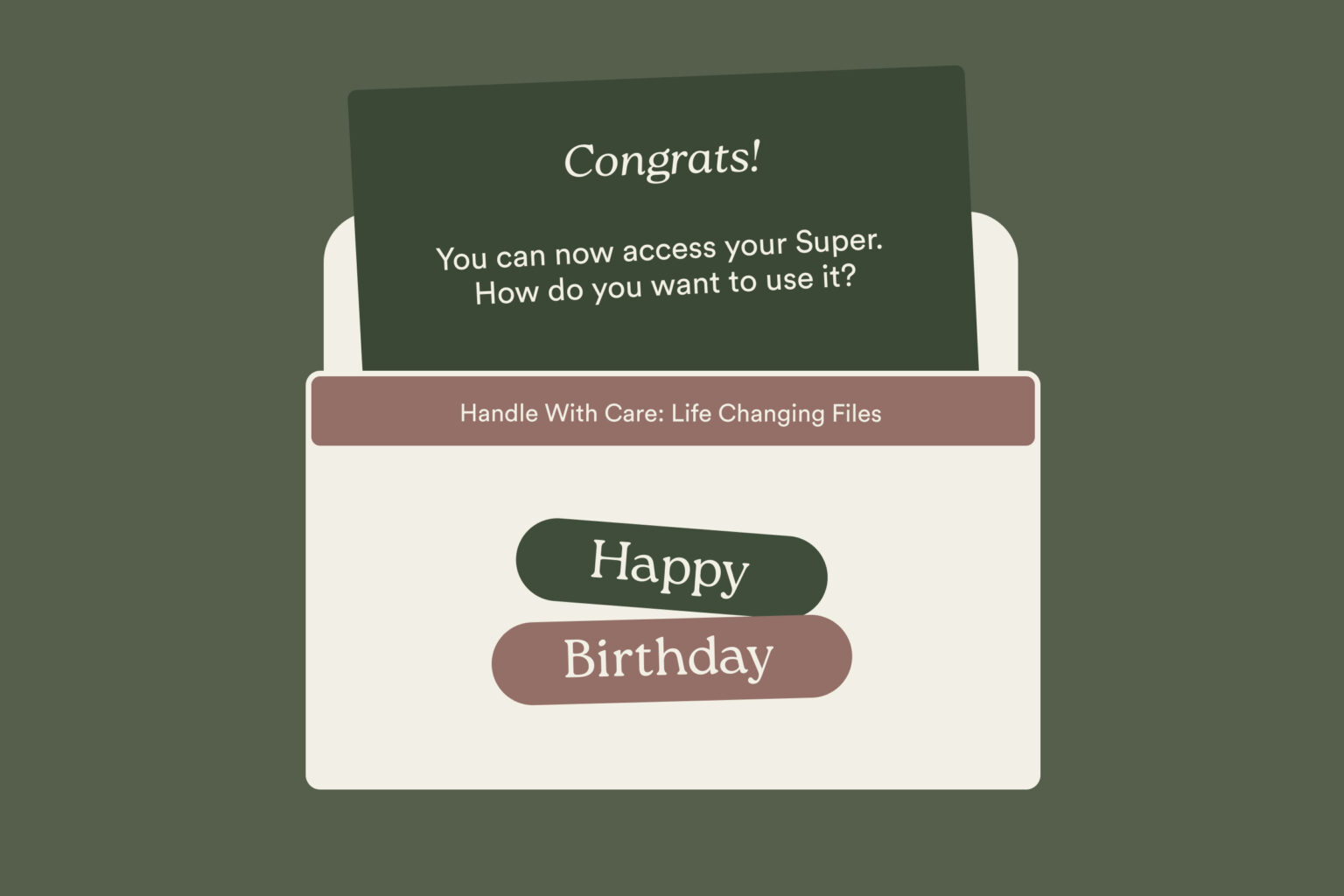You’ve hit 60—and that’s no small thing.
It’s not just a birthday. It’s a turning point—especially when it comes to your super.
Whether you’ve been counting down or the date snuck up on you, this milestone unlocks some powerful new options. And if you’re wondering what happens now—what you can do, what you should do, or whether you even need to do anything—you’re not alone.
I work with women every week who are asking the same questions.
So let’s walk through it—without the jargon, without the pressure.
What changes at 60?
The big shift? You can access your super tax-free—but only if you meet a “condition of release.”
If you’ve retired, or even just stopped one job (even if you’ve taken up a new one), you may now be eligible to:
- Take out a lump sum
- Start drawing a regular income from your super (called an account-based pension)
This means more flexibility and more choice—which is great. But it also means it’s time for a plan.
Not ready to retire just yet?
If you’re not ready to stop working just yet, but you’d love a bit more breathing space, a Transition to Retirement (TTR) plan could be exactly what you need.
This lets you access some of your super—up to 10% per year—while you’re still working.
Women use this approach to:
- Reduce work hours without reducing income
- Salary sacrifice more into super while still keeping their take-home pay steady
- Enjoy a little more balance—without waiting until “retirement” to start living life on their terms
You don’t need to work full-time until 65, a TTR might help you shift gears without losing ground.
From 5 Days a Week to More Freedom—Without Losing Her Financial Footing
One woman I worked with had been dreaming of scaling back her work—but she just couldn’t see how to make it stack up financially.
Like many women in their late 50s or early 60s, she wasn’t quite ready to retire—but the idea of working full-time until 65 just didn’t feel sustainable. At the same time, she also wanted to build her super up before stepping away from work for good.
As part of our planning, we looked at Transition to Retirement (TTR). We turned on her TTR pension, which allowed her to start drawing a small income stream from her super while still working. At the same time, we increased her super contributions through salary sacrifice.
The Result?
- Her take-home pay stayed steady.
- She reduced her working days.
- She was contributing more to super in a tax-effective way (in her case, it delivered around 24% in tax savings).
- And her super balance remained stable, because we were drawing from it and recontributing it at the same time.
- Once we walked through the numbers and the strategy, she told me it was something she’d never have figured out on her own—and that now, she finally felt confident about scaling back her work without compromising her lifestyle or future security.
- Instead of jumping straight from full-time work to full retirement, she’s now got freedom and flexibility—without losing momentum.
The Tax-Free Zone
This is the part most people love to hear:
- Super income after 60 is tax-free
- Investment earnings inside your pension account are also tax-free (as long as you’re in “retirement phase”)
So if you’ve moved your super into an account-based pension, both your payments and the growth on your remaining balance aren’t taxed.
That’s a massive win—especially over time.
A Super-at-60 Checklist
Lifestyle and Planning:
- How much income do you actually need?
- Do you want to fully retire, or ease into it?
- What lifestyle do you want—and can your super support it?
Paperwork to Check:
- Are your super fund’s beneficiary nominations up to date?
- Is your insurance inside super still appropriate?
Financial Review:
- What’s your total super balance across all accounts?
- Does your investment strategy need adjusting for retirement?
- Could government payments (like the Age Pension) factor in?
- Do you have a clear income plan that won’t leave you short later?
What to do now?
You don’t have to do everything at once. But if you’ve just turned 60—or are getting close—this is the perfect moment to sit down and map out your next chapter.
This isn’t just about money—it’s about freedom, clarity, and doing life on your own terms.
If you’re feeling unsure about your next move, let’s talk.
There are smart, simple steps you can take to feel more confident—not just about your super, but about the life you want to lead from here.






